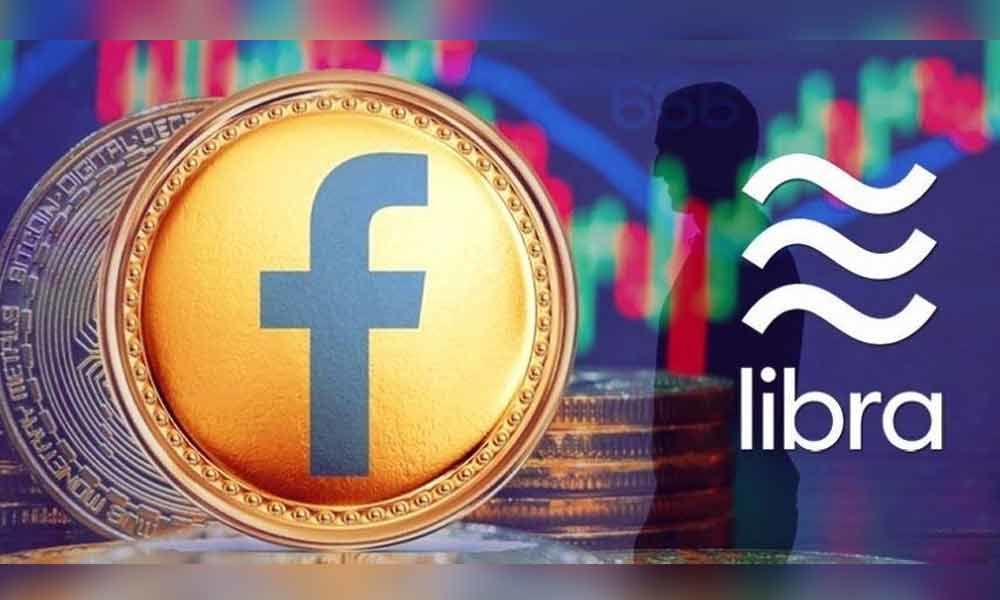10 Crazy Truths About Facebook’s New Currency Announcement
Facebook announced a big plan Tuesday: it’s launching a cryptocurrency called Libra. The idea has been hinted at for some time, and it reportedly has its origins in a brainstorm on a beach in the Dominican Republic.
Here’s Facebook’s summary in two sentences:
“Libra is a global, digitally native, reserve-backed cryptocurrency built on the foundation of blockchain technology. People will be able to send, receive, spend, and secure their money, enabling a more inclusive global financial system.”
Unpack that, and combine it with the other news that rolled out in the last 24 hours about Facebook’s planned offering, and I think there are at least 10 reasons why this whole thing falls into the category of “just so crazy, it might work.”
1. It just might work — because of Facebook.
Facebook has 2.3 billion users around the world, all of whom will ultimately face inducements to engage with — and trust — Libra. That means that almost whatever else happens with Libra, the sheer scale of the potential user base means it’s probably the effort most likely to succeed at making digital currency a broadly accepted thing in the West.
2. It just might work — in spite of Facebook.
That said, public trust in Facebook has nosedived over the last 18 months. So, to start, Facebook is trying to get around this by announcing that the cryptocurrency will be overseen indirectly — by a subsidiary called Calibra, instead of by Facebok itself — and that Facebook will control only one of the board seats overseeing it.
3. It’s backed by real assets.
Libra is reportedly going ot be backed by real assets: a “basket of currencies” that should remove some of the volatility for which bitcoin and other crypto is known from the picture. (Last month, the WSJ noted FB was been working on a “stablecoin” backed by government currencies,” and this seems to be a key point.)
4. It has big supporters.
Out of the gate, Facebook announced it’s working on Libra with big financial players like Mastercard, Paypal, Spotify, Andreessen Horowitz, and Uber. In fact, what’s surprising to me is that Facebook positions this at all as its own offering, versus saying that is’ just something it’s doing along with a coterie of fellow corporate partners.
5. It’s designed to help the unbanked.
At the outset, when it launches for real next year supposedly, one of the first targets will be the millions of people who live in places with less-than-stable banking systems. In short, if your local national government can’t provide a stable currency, Facebook will.
6. It’s also big for immigrants.
There are millions of immigrants around the world who send money to family in their home countries each month. The transaction costs on these transfers add up to $25 billion a year, according to Facebook.
7. Users could get paid.
I don’t see this idea in the documents Facebook revealed Tuesday, but there’s been speculation that consumers could earn Facebook’s cybercoin by doing things like engaging with Facebook ads.
8. Merchants will get paid.
Talk about cyclical, but the other side of this is that Facebook is considering letting users then “click ads to buy a product and pay with Facebook tokens, which the retailer could then recycle to pay for more ads,” the WSJ reported recently.
9. There are big privacy issues.
It’s not just a matter of trusting Facebook to keep information private and secure. It’s a matter of trusting really any giant, public company that answers first to shareholders when it comes to currency.
10. There’s a good chance your business will have to accept it.
If this starts to gain any kind of critical mass, that businesses of all sizes will start to accept it for payment. Just as vendors are basically forced to accept credit cards now, businesses like yours might not have any choice to accept Libra as payment.
In fact, if this works, Facebook could become the first tech company to transcend the corporate world, and take over functions that previously only governments could hope to handle. Against all odds, crypto might one day be the single thing for which Facebook is best remembered.
Article written by: Bill Murphy Jr.
0

